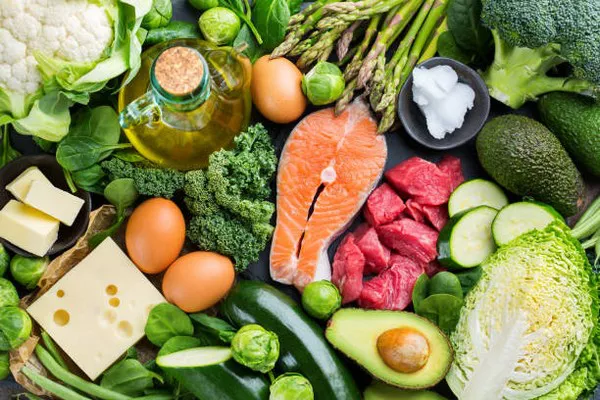Maintaining optimal blood pressure is a key aspect of overall health, and a balanced diet plays a crucial role in achieving this goal. For individuals with low blood pressure, incorporating specific foods into their daily meals can be an effective and natural way to support cardiovascular well-being. In this comprehensive guide, we’ll explore the top 10 foods to help regulate and elevate low blood pressure levels. From nutrient-rich vegetables to heart-healthy fruits and protein sources, these foods not only contribute to better blood pressure management but also offer a myriad of additional health benefits.
10 Best Foods for Low Blood Pressure
1. Leafy Greens: Powerhouses of Nutrients
Leafy green vegetables are renowned for their wealth of nutrients and health-promoting properties. Spinach, kale, Swiss chard, and collard greens, among others, are rich in potassium, magnesium, and nitrates, all of which contribute to lower blood pressure. Potassium, in particular, helps balance sodium levels, a key factor in regulating blood pressure. Incorporating a variety of leafy greens into salads, smoothies, or as side dishes can significantly contribute to overall cardiovascular health.
2. Beets: Nature’s Blood Pressure Regulator
Beets are a natural source of nitrates, compounds known for their vasodilatory effects, helping to widen blood vessels and improve blood flow. This can contribute to lower blood pressure levels. Whether consumed in salads, juices, or roasted as a side dish, beets provide a delicious and nutritious addition to a low blood pressure-friendly diet.
3. Oats: Heart-Healthy Whole Grains
Whole grains, especially oats, are rich in soluble fiber and beta-glucans, known for their cholesterol-lowering effects. By promoting heart health and improving overall cardiovascular function, oats indirectly contribute to maintaining healthy blood pressure levels. Consider starting your day with a hearty bowl of oatmeal topped with fruits and nuts to kickstart a nutrient-packed morning.
4. Bananas: A Potassium Powerhouse
Bananas are a well-known source of potassium, a mineral crucial for maintaining proper blood pressure. The balance between sodium and potassium is integral to blood pressure regulation, and incorporating bananas into your diet is a tasty way to ensure an adequate potassium intake. Whether enjoyed as a convenient snack or blended into smoothies, bananas are a versatile and heart-friendly fruit.
5. Fatty Fish: Omega-3s for Cardiovascular Support
Fatty fish, such as salmon, mackerel, and sardines, are rich in omega-3 fatty acids. These essential fats offer numerous cardiovascular benefits, including reducing inflammation, improving blood vessel function, and supporting overall heart health. Regular consumption of fatty fish, preferably two servings per week, can be an excellent addition to a low blood pressure diet.
6. Berries: Antioxidant-Rich Superfoods
Berries, including blueberries, strawberries, and raspberries, are not only delicious but also packed with antioxidants and vitamins. These compounds contribute to lower blood pressure by reducing oxidative stress and promoting blood vessel health. Whether enjoyed fresh, added to yogurt, or blended into smoothies, berries offer a sweet and nutritious way to support cardiovascular well-being.
7. Garlic: A Flavorful Blood Pressure Ally
Garlic has been celebrated for its medicinal properties for centuries, and its potential to lower blood pressure is well-documented. Allicin, a sulfur compound found in garlic, exhibits vasodilatory effects, assisting in blood vessel relaxation and blood pressure reduction. Incorporating fresh garlic into your meals or using it in cooking can not only enhance flavor but also contribute to better heart health.
8. Nuts and Seeds: Healthy Fats for Heart Wellness
Nuts and seeds, such as almonds, walnuts, flaxseeds, and chia seeds, are rich in heart-healthy fats, including omega-3 fatty acids and monounsaturated fats. These fats have been associated with improved cardiovascular function and blood pressure regulation. Including a handful of nuts or seeds as a snack or adding them to salads and smoothies can be a convenient way to boost your nutrient intake.
9. Low-Fat Dairy: Calcium and Beyond
Low-fat dairy products, such as yogurt and milk, are excellent sources of calcium and vitamin D. These nutrients play a role in blood vessel health and can contribute to the regulation of blood pressure. Opting for low-fat or fat-free dairy options ensures the benefits without excess saturated fats. Incorporate yogurt into your breakfast or enjoy a glass of milk as part of a well-rounded diet.
10. Dark Chocolate: Sweet Indulgence for Blood Pressure Control
Dark chocolate, when consumed in moderation, can offer more than just a satisfying treat—it may also contribute to lower blood pressure. The flavonoids found in dark chocolate have been linked to improved blood vessel function and reduced blood pressure. Choose chocolate with at least 70% cocoa content for maximum benefits, and savor it as an occasional indulgence.
See Also: 15 Best Vegetables for Optimal Gut Health
Conclusion
Maintaining healthy blood pressure levels is a fundamental aspect of overall well-being, and a nutrient-rich diet plays a pivotal role in achieving this goal. The foods highlighted in this comprehensive guide not only assist in lowering blood pressure but also offer a plethora of additional health benefits. As with any dietary changes, it’s crucial to consult with healthcare professionals, especially for individuals with pre-existing conditions or specific dietary requirements. By incorporating these ten powerhouse foods into your meals, you can embark on a journey towards better cardiovascular health and overall vitality.


